Mapleton State School acknowledges the traditional custodians of the place we now call our school.
We pay our respects to the Elders past and present and are proud to be supporting and encouraging emerging Indigenous leaders every day.
Term 3 Week 8
From the Principal

Attendance
Our whole school attendance is currently at 88.7%. This is below our target of 93%. We know that there can be many reasons that contribute to this figure. Every day counts at Mapleton.
While we would like to have better school data, our priority is ensuring that our students develop a positive relationship with school through regular attendance. This is vital in the Early Years when school attendance habits are formed.
We understand that children get sick, have medical appointments or at times, there can be family circumstances that require students to not attend school. When this happens, parents are responsible for informing the school of the reason for the absence. Over the coming week, we will be contacting parents (via mail) of students with a high number of unexplained absences to give them the opportunity to provide reasons for the absence, so that we can adjust each students record in OneSchool.
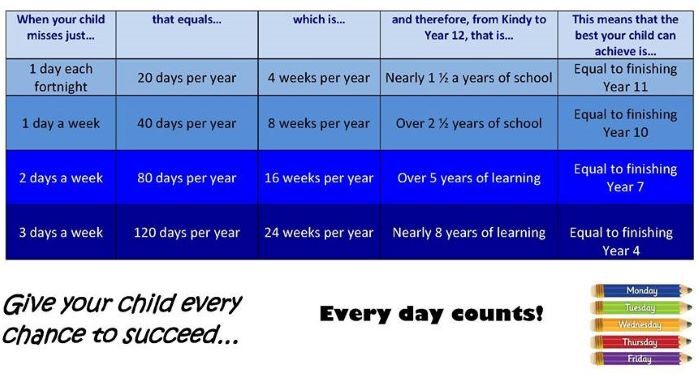
Parent code of conduct
We promote the Mapleton Way with our students and our school’s Student Code of Conduct. This can be found on our website, and includes a section on expectations for staff and parents. In this newsletter, there is a document from the department that outlines the code of conduct which parents and visitors are expected to follow.
Positive behaviour- What do we do to acknowledge positive behaviour at Mapleton?
Mapleton State School is committed to meeting the learning and behavioural needs of all students. For this to occur, the school not only focuses on Whole School approaches to positive behaviour, but also understands there is a need for targeted and intensive support systems. There are many positive things happening at Mapleton each day. As a school, we recognise and celebrate our student's success. Our Mapleton Way positive behavior certificates are presented to students during each week to acknowledge their positive behavior in line with our behavior matrix. The positive behaviour is recorded in each student's permanent file.
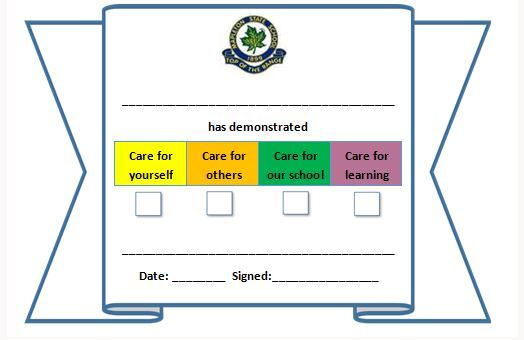
Even the smallest gestures can make such a positive impact.
Zones of regulation
During Term 4, we will be rolling out Zones of Regulation across the school. The Zones of Regulation are a framework to foster self-regulation and emotional control. The Zones of Regulation framework is used to:
- simplify how we think about and manage feelings and internal states
- ease communication pressures
- encourage co-regulation and problem-solving
- teach students self-regulation strategies
- support students to move towards independence!

Facilities- the following work is being conducted across the school.
Tree work- continued selective pruning and removal. This is to facilitate easier gutter maintenance, fire reduction and improve water quality. Staff can park near A Block again which will free up some spaces in the main carpark.
Painting- facilities refresh. Quotes for Prep and the undercover area next to Administration. Once we have quotes we will have a better idea of how to budget and plan to refresh the rest of the school. Murals that have significance to the school will be retained where possible.
ICT- two new interactive projectors have been installed in Year 1 and Year 2. Four more on order. This will help improve the deliver of lessons in all classrooms.
The drainage works next to our multipurpose court is in preparation for the upcoming court resurfacing.

School Watch
We love our school and want to come back after the holidays knowing that our school is safe and ready for learning.
During this period empty schools provide an opportunity for criminal activity, becoming targets for unlawful entry, arson, stealing, graffiti and property damage – all of which become a cost to the community.
The School Watch Program is a partnership between Education Queensland, the Queensland Police Service and the State Government Protective Security Service. It aims to reduce criminal activity in Queensland schools and encourages everyone to look out for after-hours crime in our schools. If you see anything suspicious, please don’t attempt to intervene.
Call the School Watch number – 13 17 88
Let’s work together to help create safer school communities.
Curriculum News
Dear Parents and Carers,
Over the last few years, our school has been focused on improving spelling outcomes for all students. Our school goal is ‘We are developing a consistent, whole school approach to support all students in becoming confident, confident spellers’. After much research we decided to implement PLD (Promoting Literacy Development) which is a whole-school approach to improving literacy and in particular spelling. Evidence suggests that student outcomes will always be maximised if a whole school approach is implemented. As a staff, we are working hard to further develop our skills and to ensure a consistent approach for teaching spelling across the school.
A little bit about PLD …
The PLD approach was created by Danna Rigg, an experienced educator and Speech Pathologist. PLD is supported by current research and has been shown to be effective in producing improved literacy, and especially spelling skills. By choosing to use PLD’s approach, in conjunction with professional development and consistent screening and tracking, we are investing in what will produce results for our students based on current research.
PLD advocates that children’s literacy and learning outcomes are maximized when the areas of Literacy, Oral Language and Movement & Motor skills are simultaneously targeted.
PLD’s Approach: The Three Areas in Literacy Development (source- PLD website) | |
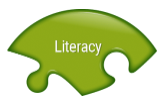 | Literacy ‘Word Attack’, spelling and decoding skills are derived from areas such as phonemic awareness and phonic knowledge. While these areas are important and are central to PLD’s evidence-based structured synthetic phonics program, the hallmark of literacy proficiency is comprehension and written expression ability and these areas are influenced by oral language and motor skills. |
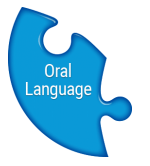 | Oral LanguageOral language refers to the act of speaking and listening. The main components for the oral language skill set includes word knowledge (vocabulary); sentence structure (grammar); language understanding (semantic and comprehension ability); and structured thinking (or the ability to elaborate, organise and sequence thoughts). While poor oral language skills do not prevent children from reading, the long-term impact is concerning. By middle primary school, when both the curriculum and reading material increase in difficulty, a significant number of students will struggle to keep up with the demands of the curriculum if they have poorly developed language skills. |
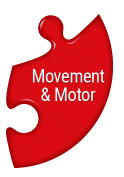 | Movement & MotorThe way students organise their body and use their muscles to respond to what they hear is a big part of literacy. Often a physical response is required. A classic example is the ability to follow instructions and compose a written response. A range of physical skill development supports the functioning within a classroom and includes skills such as pencil grip, cutting skills, letter formation and handwriting. |
What are we focusing on first?
Over the last two years, we have focused on ‘Literacy’ and implementing a whole-school approach to teaching spelling. We are following a structured, synthetic phonics approach using PLD to roll this out across our whole school. It aligns with scientifically proven practices about the most effective ways to improve literacy. PLD’s Structured Synthetic Phonics (SSP) approach is based on international research and the resources are upgraded as new research becomes available.
Where can I find out more?
The PLD website also has a wealth of information and is well worth a visit.
Information about the evidence-base for PLD can be found on the website here.
The AUSPELD website further explains SSP for parents/carers and teachers.
Our school newsletter regularly includes information and the school website will also be updated to include key information.
We are so excited about the impact our whole school approach to improving literacy and spelling is having for our students. We thank all of our teachers and support staff for working so hard to improve our approach. Thanks also to our parents and carers for your support.
Kind regards,
Tia Page – Head of Department: Curriculum
Book Week
Book Week was a great success.








